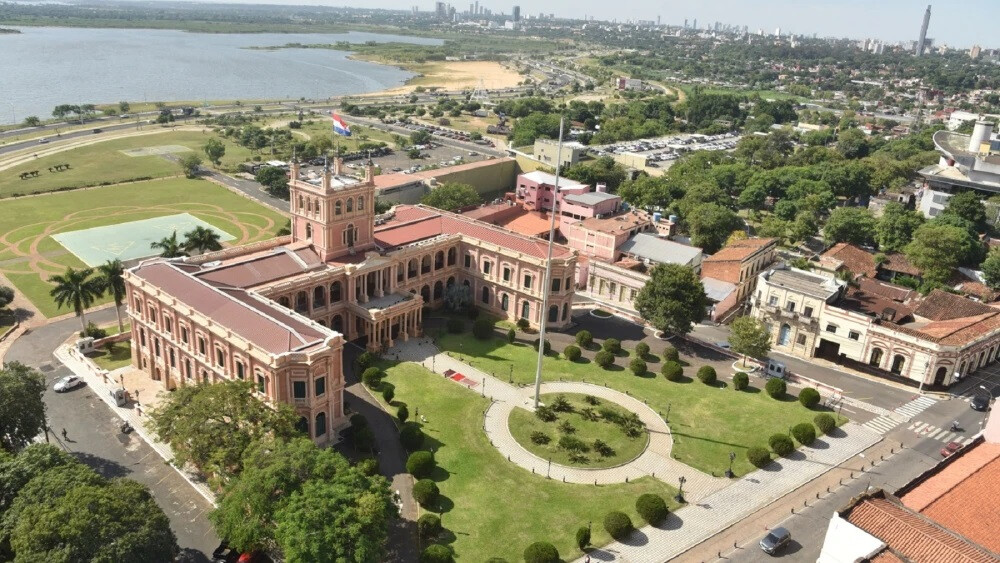
Asunción, Paraguay – A recent 'Global Cities Index 2025' report by Oxford Economics reveals Asunción's significant economic challenges, placing it 17th among South American cities and 468th globally. Anthony Bernard-Sasges, a London-based American Senior Economist at Oxford Economics, pointed out that Asunción has the lowest per capita income among South American cities and maintains a high level of income inequality.
The Dilemma of Economic Growth and Social Disparity
Bernard-Sasges emphasized that as Asunción's population continues to grow, overcoming income inequality while increasing productivity is essential. He stated, "It will be crucial for Asunción to achieve productivity gains to maximize the potential of its expanding labor force. Currently, Asunción has the lowest GDP per capita among South American cities, and income inequality is also very high, which negatively impacts the city's economic and quality of life outcomes."
He added that focusing on improving these indicators in the future would benefit Asunción, creating "a virtuous cycle that can further stimulate business investment and, as a result, attract more talent to the city." His remarks suggest that Asunción needs to move beyond simple economic growth rates and improve the quality of life for its citizens through qualitative growth and better income distribution. Currently, the city's urban poverty rate remains high, and access to social services also requires improvement.
Positive Aspects: Environmental and Human Capital Potential
Asunción wasn't evaluated negatively in all aspects. Bernard-Sasges highlighted the environment as Asunción's strongest sector. The city ranked 283rd due to low emission intensity and fewer natural disasters compared to other cities in the region. This indicates that Asunción maintains an environmentally friendly urban environment and has relatively low vulnerability to climate change.
Positive aspects also emerged in the human capital sector. Asunción ranked 337th in the Global Cities Index and showed a very positive outlook from a demographic perspective. He emphasized, "Asunción has a very positive demographic outlook. Strong population growth is expected over the next five years, and it boasts the youngest population in South America." This solid demographic base will help increase labor supply in the coming years, making it an attractive destination for businesses seeking to leverage abundant human resources. This could potentially contribute to job growth and economic revitalization.
Comparison with Other Cities in the Region
According to an international report released last week, Asunción, the capital of Paraguay, ranked low among the 1,000 cities evaluated, primarily showing weaknesses in economic, quality of life, and governance aspects.
Regional rankings reveal Asunción's clear weaknesses compared to other South American cities. Santiago, Chile, ranked 160th, excelling particularly in human capital. This was attributed to its well-established educational infrastructure, numerous universities, and ability to attract qualified talent. Santiago is also strengthening its role as an innovation hub and holds an important position in the regional startup ecosystem.
Buenos Aires, Argentina, ranked 192nd overall, with strong performance in quality of life and environment offsetting its 127th ranking in human capital. It also boasts a significant economic scale with a metropolitan GDP exceeding $250 billion and a population of over 15 million, serving as a major hub for investment in Latin America, according to the report.
Other major South American cities, such as São Paulo, Brazil (303rd), Lima, Peru (296th), and Bogotá, Colombia (300th), also ranked higher than Asunción. São Paulo notably placed within the top 100 cities globally for human capital, thanks to its extensive university network and business environment. Lima and Bogotá are strengthening their regional presence with rapid population growth and urban infrastructure development. Even smaller cities like Medellín, Colombia, and Curitiba, Brazil, surpassed Asunción in areas like governance, urban innovation, and sustainable mobility.
Economic Expert Anthony Bernard-Sasges
Anthony Bernard-Sasges, who conducted the analysis for this report, is an economist with Oxford Economics' Cities and Regions team. He has extensive experience in forecasting urban economies in developed and emerging markets, as well as researching the economic impacts of climate change, migration, and government policies. He holds a Master's degree in Development Economics from Oxford University, where his thesis explored the effects of government cash-for-work programs on social welfare outcomes, labor markets, and rural-urban migration. His in-depth economic analysis provided a crucial foundation for this assessment of Asunción.
Overall, while Asunción possesses strengths in demographic potential and an eco-friendly environment, it appears to face significant challenges in increasing productivity and resolving income inequality to translate these strengths into tangible economic growth and improved quality of life for its citizens. This report clearly indicates the areas Asunción needs to focus on for sustainable development.
[Copyright (c) Global Economic Times. All Rights Reserved.]



























